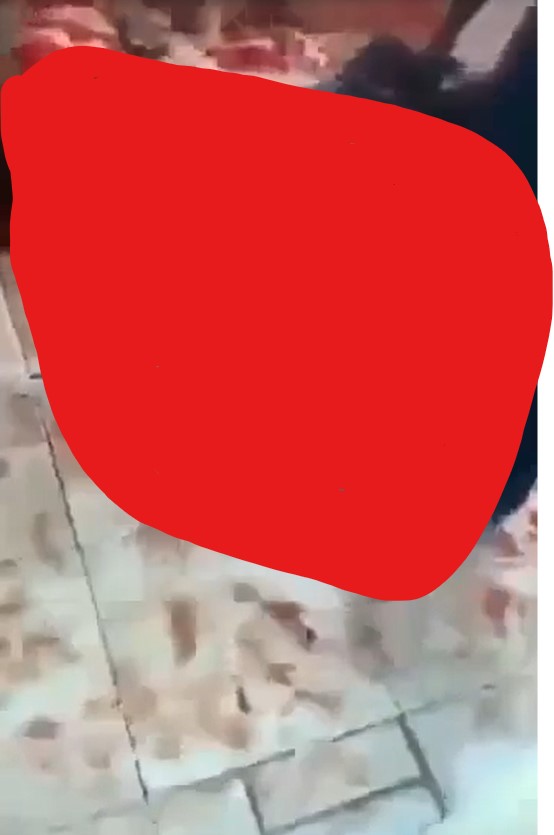Funky Town Video: Exploring The Shocking Cartel Violence WARNING
Can a single video truly shatter the facade of a civilized world and expose the raw, brutal underbelly of human depravity? The infamous "Funkytown" video, a gruesome piece of cartel propaganda, achieved exactly that, leaving an indelible mark on those who dared to witness its horrors and sparking a global conversation about the darkest corners of humanity.
The digital age, with its boundless reach and instant accessibility, has become a breeding ground for the dissemination of disturbing content. Among the most notorious examples is the "Funkytown" video. This shocking piece of footage, which first surfaced online around 2016, presents a deeply disturbing spectacle: the torture and execution of an unidentified individual, presumably a rival gang member, at the hands of a Mexican cartel. The victim is shown bound and subjected to unspeakable acts of violence, the entire ordeal captured and disseminated for a chilling purpose.
The exact date of the incident remains shrouded in uncertainty, though its emergence is linked to the year 2016. The location is believed to be within Mexico, a nation grappling with the relentless violence perpetrated by powerful drug cartels. These criminal organizations, driven by greed and a thirst for power, frequently resort to extreme brutality to intimidate their rivals, control territory, and send a clear message to anyone who dares to challenge their authority. The "Funkytown" video, along with other similar recordings, exemplifies this chilling strategy.
The video, estimated to be approximately 2 minutes and 50 seconds long, offers a glimpse into a world far removed from the norms of society, a realm where the boundaries of human decency are obliterated. It is a world where torture is not merely a means to an end but a form of entertainment and a demonstration of absolute control. The anonymity of the victim, the graphic nature of the violence, and the calculated nature of the video's creation all contribute to its disturbing impact.
The very name "Funkytown," derived from the song that eerily plays in the background during the final moments of the video, adds a layer of surreal horror. The juxtaposition of the upbeat music with the gruesome imagery creates a sense of profound unease, highlighting the depravity of the perpetrators. This chilling irony further amplifies the video's impact, leaving viewers with a lingering sense of dread and moral outrage.
The video's widespread dissemination across the internet, particularly on platforms like kaotic.com, where it was first uploaded by a user known as "pinkfloyd", has ensured that it has reached a global audience. This exposure has prompted a complex and often uncomfortable dialogue about violence, the role of cartels, and the collective responsibility of society in addressing these grave concerns. It's a reflection of the dark side of the digital age, where the gruesome realities of the world can be readily accessed, often with little or no warning.
It is important to state, that some of the information about the video is still unknown. The identity of the victim and the cartel responsible are unknown. The video is a stark reminder of the lengths to which those involved in such conflicts will go and the challenges in uncovering the full details of such acts.
The video's impact extends beyond the immediate horror it depicts. It serves as a powerful example of how digital media can amplify societal issues. It prompts a complex and often uncomfortable dialogue regarding violence, the role of cartels, and our collective responsibility in addressing these grave concerns. The existence and widespread availability of "Funkytown" and similar videos are a reflection of a larger societal problem, a dark reality that cannot be ignored.
The motivations behind the cartel's actions, as exemplified in the "Funkytown" video, are complex and multifaceted. While the primary goal is undoubtedly to instill fear and intimidate rival gangs, there are other factors at play. The cartels use these videos as a form of propaganda, a means of demonstrating their power and control over the areas they operate in. The videos also serve as a recruitment tool, attracting individuals who are drawn to the violence and the perceived power it represents. Moreover, the cartels likely derive a sense of satisfaction and validation from the acts of brutality they perpetrate, seeing themselves as untouchable rulers of their domain.
The act of recording and distributing such videos, as the "Funkytown" video exemplifies, is a calculated move. This strategy is to broadcast the savagery of the cartels to a broader audience and aims to send a strong message to potential rivals and anyone who would dare to stand against them. The videos are intended to inflict psychological harm, creating a climate of fear and preventing any opposition. It's a brutal form of information warfare, using the very medium that connects the world to spread terror and maintain control.
It's crucial to understand the broader implications of this disturbing content. The proliferation of such videos raises serious questions about the responsibility of online platforms and the need for stricter content moderation policies. It also highlights the need for greater awareness of the psychological impact of viewing such material. Those who stumble upon this content, whether intentionally or unintentionally, can experience trauma and mental distress. This underscores the need for resources and support for those who have been exposed to such violent imagery.
While details are scarce, the case of "Funkytown" offers valuable insights into the brutal nature of organized crime in certain parts of the world. The video serves as a reminder of the human cost of the drug war and the urgent need to address the root causes of this violence. Combating the cartels requires a comprehensive approach that includes law enforcement, social programs, and international cooperation. It's a battle that demands unwavering determination and a commitment to upholding the values of human dignity and justice.
The unsettling nature of the "Funkytown" video leaves many with questions. Why is it so widely shared? What are the motivations of the individuals involved? What can be done to prevent the creation and spread of such horrific content? These are questions that demand our attention. Addressing the issues raised by "Funkytown" requires a multi-faceted approach. It means supporting law enforcement, addressing the socio-economic factors that contribute to the drug war, and promoting a culture of respect for human life. This is not just a battle for the physical safety of individuals but a fight for the soul of society.
The chilling reality is that this is not an isolated incident. The world is full of similar videos, and the cartels' use of the internet to broadcast their brutality is a calculated strategy. The "Funkytown" video is a stark reminder of the ongoing struggle against the dark forces that threaten to consume the world. It's a call to action, urging us to confront the darkness and stand up for a better future, where the values of human life, justice, and compassion will prevail.
The impact of the "Funkytown" video, and other similar content, extends beyond the immediate shock and horror. It prompts reflections on the nature of evil, the fragility of human life, and the responsibility of society to protect its members from such violence. This also pushes us to confront the dark realities of the world, reminding us that violence is not always a distant phenomenon but a harsh reality that can be seen every day.
It also raises questions about the nature of empathy and the capacity for compassion. Witnessing such brutality can lead to a sense of despair, a feeling that humanity is inherently flawed and incapable of goodness. But, it's also possible to use these experiences to fuel a desire for change. It can make us more committed to fighting for justice and working towards a world where such atrocities are no longer possible. It demands reflection, introspection, and a firm commitment to creating a better world.
The "Funkytown" video continues to shock and disturb those who encounter it. The video serves as a symbol of the cartel violence, the dark side of the internet, and the urgent need for action. It's a call to action, urging us to confront the darkness and stand up for a better future, where the values of human life, justice, and compassion will prevail.
The availability of "Funkytown" and similar videos creates a difficult moral dilemma. The media's role in reporting such events is important. While it is essential to expose the atrocities of the cartels, the way such events are reported on should be carefully considered, to avoid causing more trauma or inadvertently promoting the very violence they are trying to denounce.
The video's legacy serves as a harsh reminder of the dangers of organized crime and the importance of vigilance. It is a reminder of the need for compassion, justice, and the unwavering defense of human dignity.
The "Funkytown" video is more than just a gruesome piece of digital content. It is a symbol of a world consumed by violence, a world where the rule of law is ignored, and the most basic human values are disregarded. This video, and all similar content, should serve as a reminder that there is still much work to be done and that a concerted effort is necessary to address the challenges posed by organized crime and the dark forces that threaten to undermine society.



Detail Author:
- Name : Eva Stehr
- Email : quinten65@leuschke.com
- Birthdate : 1972-07-20
- Address : 470 Linwood Pass Suite 573 Dachtown, IN 53622-8539
- Phone : (412) 828-7745
- Company : Ratke-Lang
- Job : Insurance Sales Agent
- Bio : Officia ipsa aliquam maxime corporis qui. Odio soluta et veritatis dolores. Atque et unde quas.